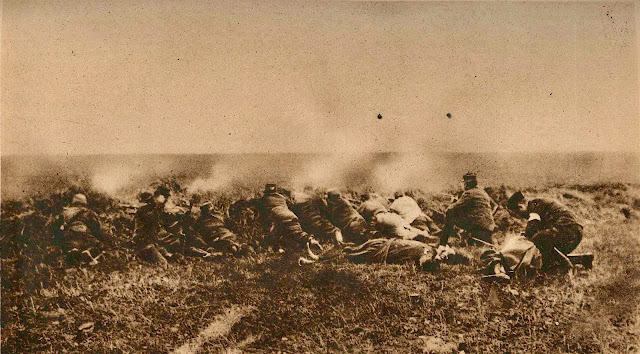In the early stages of World War I, from January to March 1915, World War I broke out in Europe as Allied forces (Britain, France, Russia, etc.) and the Tripartite Pact (Germany, Austria, Italy, etc.) clashed on the Western Front. The battle broke out on the front of Erne Court in France. One French soldier was killed in action and laid on his back. The other French soldier was being treated by a Red Cross surgeon. The second French soldier from the left attempted to fall immediately after being shot.
By September 1, 1914, the Germans on the Western Front had won an overwhelming victory. Under the pressure of the overwhelming German hordes, the Allied troops were driven from their positions where the French were advancing across the northern border. French forces withdrew continuously for about ten days until they held a jittery front running from the northern limit in a northeasterly direction. At Verdun, the Western Front came to a halt, and the southern end of the line was heading toward Paris. The very sudden change was symbolic of the retreat of the French army and the victory of the Germans. The French army had been destroyed and was defending itself. However, the small expeditionary force of French and British troops did not exceed about a tenth of the total number of troops in the line. Despite the long retreat and terrible tensions, the French soldiers trusted that the Francs were retreating to the best place to fight.
Across the rapidly changing western front, the sluggish rivers of the Marne and Aisne slowly wound their way from east to west. in September 1914, the great battle of World War I broke out. In September 1914, a major battle of World War I broke out: the French army decided to wage an immense battle along the Marne River. At the beginning of September, when the reserve army was called up, the operation was carried out. In early September, the right flank of the German army, which had not attacked under French garrison, invaded towards the French left flank.

